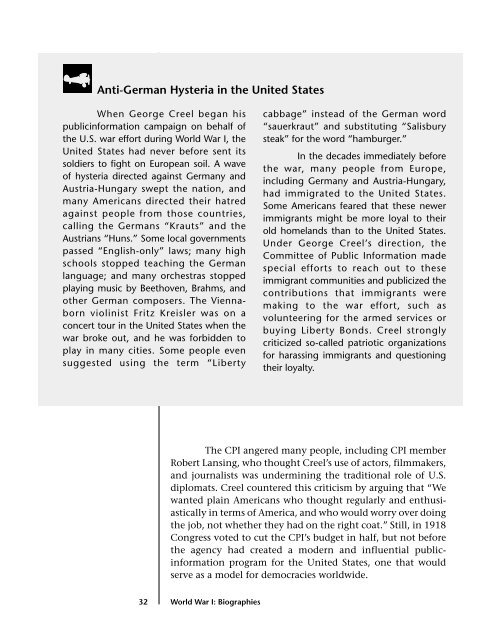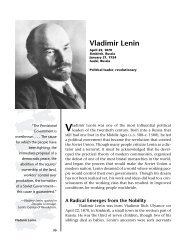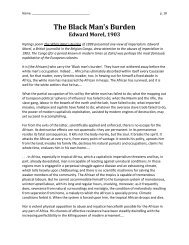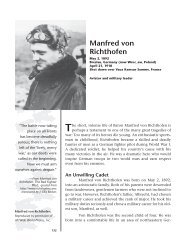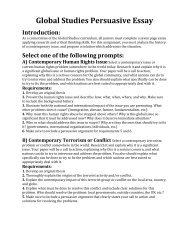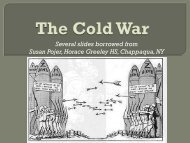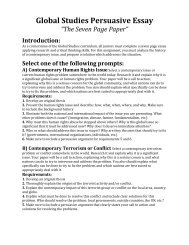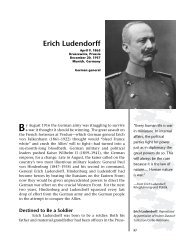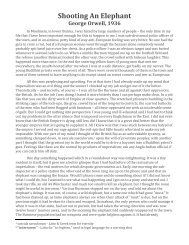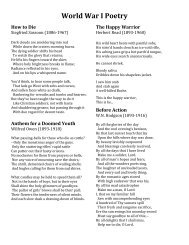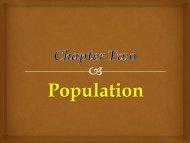George Creel
George Creel
George Creel
Create successful ePaper yourself
Turn your PDF publications into a flip-book with our unique Google optimized e-Paper software.
Anti-German Hysteria in the United States<br />
When <strong>George</strong> <strong>Creel</strong> began his<br />
publicinformation campaign on behalf of<br />
the U.S. war effort during World War I, the<br />
United States had never before sent its<br />
soldiers to fight on European soil. A wave<br />
of hysteria directed against Germany and<br />
Austria-Hungary swept the nation, and<br />
many Americans directed their hatred<br />
against people from those countries,<br />
calling the Germans “Krauts” and the<br />
Austrians “Huns.” Some local governments<br />
passed “English-only” laws; many high<br />
schools stopped teaching the German<br />
language; and many orchestras stopped<br />
playing music by Beethoven, Brahms, and<br />
other German composers. The Viennaborn<br />
violinist Fritz Kreisler was on a<br />
concert tour in the United States when the<br />
war broke out, and he was forbidden to<br />
play in many cities. Some people even<br />
suggested using the term “Liberty<br />
cabbage” instead of the German word<br />
“sauerkraut” and substituting “Salisbury<br />
steak” for the word “hamburger.”<br />
In the decades immediately before<br />
the war, many people from Europe,<br />
including Germany and Austria-Hungary,<br />
had immigrated to the United States.<br />
Some Americans feared that these newer<br />
immigrants might be more loyal to their<br />
old homelands than to the United States.<br />
Under <strong>George</strong> <strong>Creel</strong>’s direction, the<br />
Committee of Public Information made<br />
special efforts to reach out to these<br />
immigrant communities and publicized the<br />
contributions that immigrants were<br />
making to the war effort, such as<br />
volunteering for the armed services or<br />
buying Liberty Bonds. <strong>Creel</strong> strongly<br />
criticized so-called patriotic organizations<br />
for harassing immigrants and questioning<br />
their loyalty.<br />
The CPI angered many people, including CPI member<br />
Robert Lansing, who thought <strong>Creel</strong>’s use of actors, filmmakers,<br />
and journalists was undermining the traditional role of U.S.<br />
diplomats. <strong>Creel</strong> countered this criticism by arguing that “We<br />
wanted plain Americans who thought regularly and enthusiastically<br />
in terms of America, and who would worry over doing<br />
the job, not whether they had on the right coat.” Still, in 1918<br />
Congress voted to cut the CPI’s budget in half, but not before<br />
the agency had created a modern and influential publicinformation<br />
program for the United States, one that would<br />
serve as a model for democracies worldwide.<br />
32 World War I: Biographies


